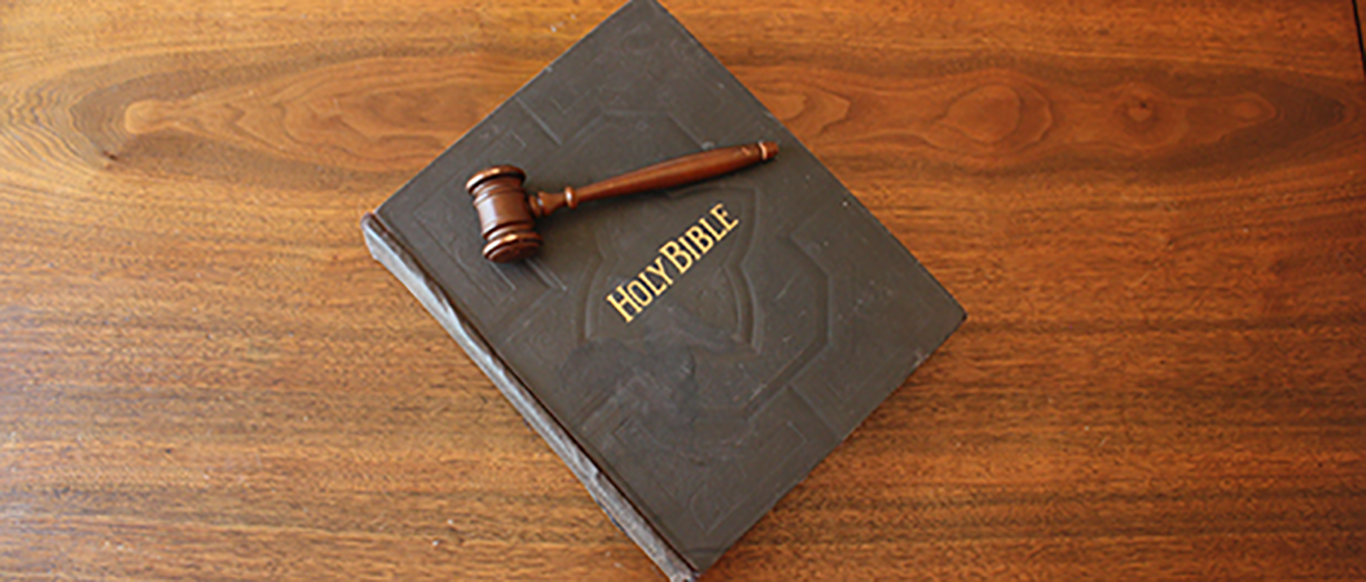‘Tis the season of political campaigns, voting, and reconciling with election results. We rejoice in this freedom, and tout this regularly scheduled process as one the hallmark opportunities of a healthy nation. However, amidst the clamors of forward hope and change and the call to believe in America, repeated voices continue to call for a separation of church and state. Certainly, as offspring of ancestors who sought to escape from various tyrannies of religious-based political persecution, many of us do not want our government to dictate who, when, where, and how we worship. Nor do we necessarily want religion to dictate our government, especially when we live amidst a melting pot of religions.
What we seek is balance, as voiced in Ecclesiastes 7:18, “Those who fear God will avoid all extremes.”
The two sides are this: While many prefer their religion free from undue, secular political influence, many likewise prefer their politics free from undue, sectarian religious influence. Yet, is this possible? Can religion and politics be separated?
On the one hand, the Scriptures tell us that “Everyone must submit themselves to the governing authorities, for there is no authority except that which God has established. The authorities that exist have been established by God” (Romans 13:1).
Clearly, God established the very concept of authority, the existence of institutional governance, and the practicalities of segmented leadership among groups of peoples. As evidenced in the call of Moses (Exodus 3), the selection of representative leadership among successively larger groups of people (Exodus 18), and the anointing of selected national leaders (1 Samuel 9, 16), government is, itself, an established Biblical concept. But, does government have to have a religious component?
The reality is that every government system rests on a framework of beliefs. The authorities, differentiations, standards, and accountabilities claimed and enforced by our various societal communities are rooted in something, someone, somewhere.
The fact that our own American system grew out of a heavily influenced Biblical and Christian worldview has been one reason our nation has been perceived as a blessed nation, and one reason that the removal of any core piece of our original framework is perceived as weakening our nation and removing a portion of our blessing. Given that religion is defined as a set of fundamental beliefs and practices, often involving ritual observances and containing codes governing conduct, governments are, by this definition, inherently somewhat religious in nature.
On the other hand, religion contains governmental elements, including a component much more fundamental than church or denominational structure. Perhaps you have heard the mantra in government that suggests that who you know is often the most important thing in any situation? That, at the end of the day, politics is personal?
The same appears to be true in religion, particularly Christianity. Note Jesus’ words in John 14:6, “I am the way and the truth and the life. No one comes to the Father except through me.” And again Matthew 7:21-23 where Jesus explains, “Not everyone who says to me, ‘Lord, Lord,’ will enter the kingdom of heaven . . . many will say to me on that day, ‘Lord, Lord, did we not prophesy in your name, and in your name drive out demons and perform many miracles?’ Then I will tell them plainly, ‘I never knew you. Away from me, you evildoers!’”
So, at the end of the day, religion is personal and political. If entrance through Heaven’s Gate is gained through Who you know, and politics and religion are not separate on the other side of eternity, perhaps they are also somewhat integrated and inseparable on this side as well.

Published in Meat and Potatoes for the Soul“, Copyright © 2013 by K. Lynn Lewis.




